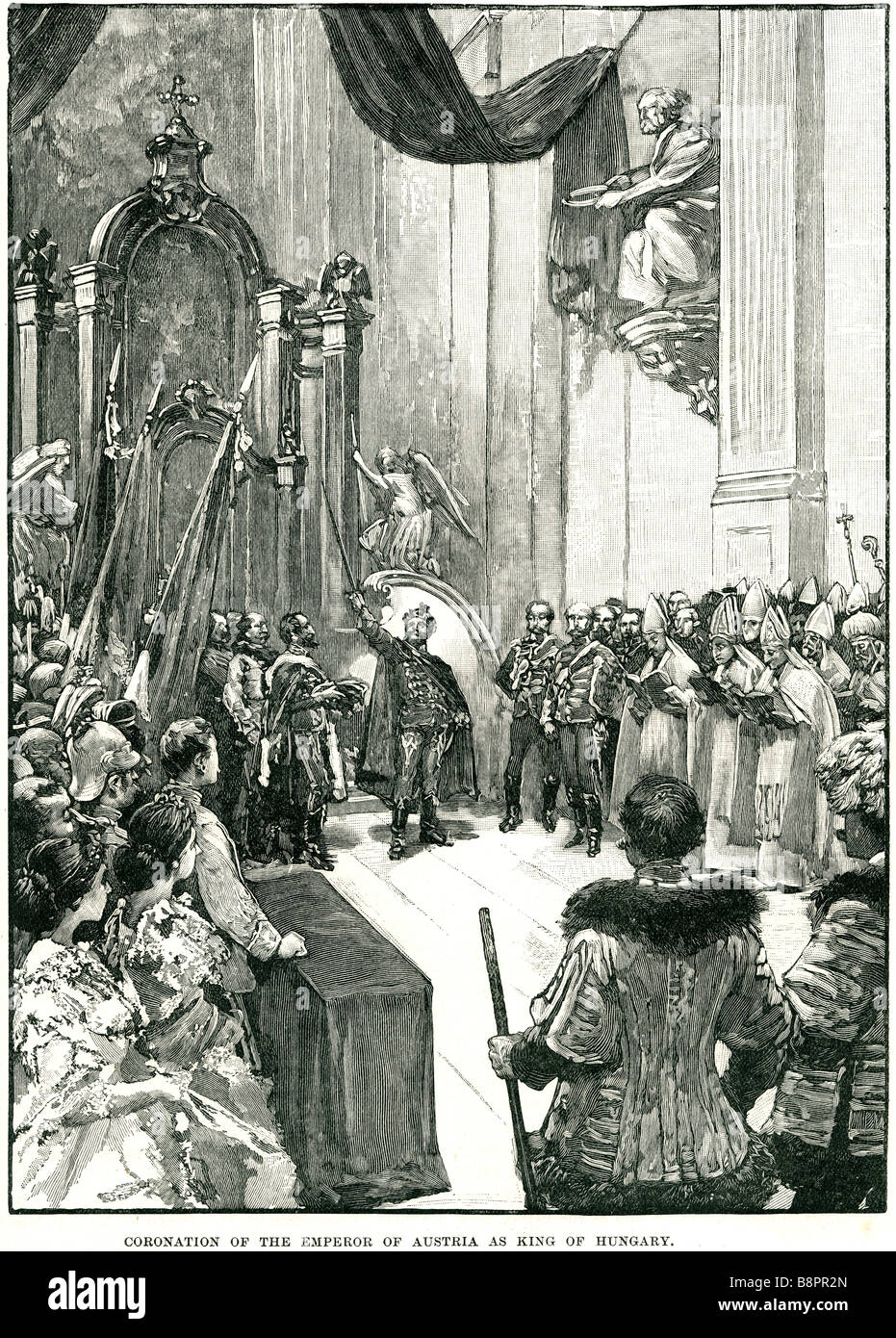1867 coronation of the emperor of austria Franz Joseph I Karl king of hungary

Image details
Contributor:
19th era / Alamy Stock PhotoImage ID:
B8PR2NFile size:
53.8 MB (7.1 MB Compressed download)Releases:
Model - no | Property - noDo I need a release?Dimensions:
3671 x 5121 px | 31.1 x 43.4 cm | 12.2 x 17.1 inches | 300dpiMore information:
Franz Joseph I Karl (-German, in English Francis Joseph I Charles, see the name in other languages) (18 August, 1830 – 21 November, 1916) of the Habsburg Dynasty was Emperor of Austria, King of Hungary from 1867 until 1916. Under the guidance of the new prime minister Prince Schwarzenberg, the new emperor at first pursued a cautious course, granting a constitution in early 1849. At the same time, military campaigns were necessary against the Hungarians, who had rebelled against Habsburg central authority under the name of their ancient liberties. Franz Joseph was also almost immediately faced with a renewal of the fighting in Italy, with King Charles Albert of Sardinia taking advantage of setbacks in Hungary to resume the war in March 1849. Soon, though, the military tide began to turn in favor of Franz Joseph and the Austrian whitecoats. Almost immediately, Charles Albert was decisively beaten by Radetzky at Novara, and forced both to sue for peace and to abdicate his throne. In Hungary, the situation was more grave and Austrian defeat was quite possible. Franz Joseph, sensing a need to secure his right to rule sought help from a reactionary Russia. With this Russian aid the Hungarian revolution was crushed by late summer of 1849. With order now restored throughout the Empire, Franz Joseph felt free to go back on the constitutional concessions he had made, especially as the Austrian parliament, meeting at Kremsier, had behaved, in the young Emperor's view, abominably. The 1849 constitution was suspended, and a policy of absolutist centralism was established, guided by the Minister of the Interior, Alexander Bach. The next few years saw the seeming recovery of Austria's position on the international scene following the near disasters of 1848–1849. Under Schwarzenberg's guidance, Austria was able to stymie Prussian scheming to create a new German Federation under Prussian leadership, excluding Austria. After Schwarzenberg's premature death in 1852, he could not be